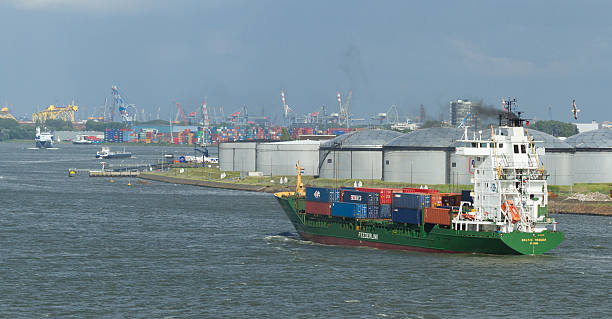Nigeria, often referred to as the “Giant of Africa,” is embarking on an ambitious journey to cement its place as a leader in global agricultural exports by 2025. With more than 70% of the workforce employed in agriculture and the sector accounting for nearly 25% of the country’s GDP, it has enormous potential to spur economic diversification, generate jobs, and lessen reliance on crude oil exports. This plan is supported by partnerships, policy changes, and strategic investments meant to scale up the country’s agricultural value chain and bring it up to international standards.
AGRICULTURE AS NIGERIA’S ECONOMIC GAME-Change
Nigeria has a natural edge in agricultural production due to its lush grounds and varied climate. Nigeria’s export portfolio has historically included the basics, including cashew nuts, ginger, cocoa, cassava, and sesame seeds. Despite this potential, the nation now lags behind major exporters like India in cashews and Côte d’Ivoire in cocoa because of issues like inadequate infrastructure, restricted access to financing, and uneven quality standards.
The Nigerian government is attempting to buck this trend with programs like the National Agricultural Technology and Innovation Policy (NATIP) and the Agricultural Transformation Agenda (ATA). The objective is to transform agriculture into a booming export powerhouse as well as a source of food security.
KEY PILLARS OF THE PLAN
To achieve its export leadership goal, Nigeria is focusing on the following key areas:
- Increasing the Capacity for Production
To boost food output, the government is spending money on extensive irrigation and robotic farming. Smallholder farmers can obtain financing, fertilizer, and improved seedlings through programs like the Central Bank of Nigeria’s (CBN) Anchor Borrowers’ Programme (ABP). Crops like maize and rice have already produced more as a result of this. - Enhancing Logistics and Infrastructure
Nigeria’s agricultural exports have been severely hampered by inadequate storage and transportation infrastructure. In order to mitigate post-harvest losses and guarantee effective supply chains, investments are being made in export ports, rural transportation networks, and cold storage systems. For example, it is anticipated that the Lekki Deep Sea Port will be essential to expediting the export procedure. - Using Innovation and Technology
Farmers are adopting new agricultural practices with the use of digital platforms such as precision farming instruments and the e-wallet system for fertilizer distribution. By increasing productivity and guaranteeing that crops fulfill international quality requirements, these technologies increase crops’ competitiveness in worldwide markets. - Trade Partnerships and Market Access
Nigeria has access to a $3.4 trillion market through the African Continental Free Trade Area (AfCFTA). In order to establish Nigerian agricultural products as high-end options throughout Africa and beyond, the government is taking advantage of this chance. Nigerian exporters are also finding it easier to enter markets with high demand thanks to alliances with nations like China and the Netherlands. - Quality Assurance and Certification
Strict adherence to food safety and quality regulations is required by international markets. To make sure that its exports fulfill these standards, Nigeria is spending money on labs and certifying organizations. The Nigeria Export Promotion Council (NEPC), for instance, is spearheading initiatives to educate exporters about labeling, packing, and regulatory compliance.
REAL-WORLD EXAMPLES OF PROGRESS
1. Cocoa: By increasing output and implementing sustainable farming methods, Nigeria hopes to regain its status as a leading cocoa exporter. Cocoa exports increased by 15% in 2022, demonstrating the effectiveness of continuous efforts.
2. Sesame Seeds: Nigeria presently produces the most sesame seeds in Africa, and a sizable amount of these seeds are sold to China, Japan, and Turkey. It is anticipated that improved processing facilities will increase export revenue.
3. Cashew nuts: The Nigerian Cashew Association predicts that by 2025, cashew exports will have increased by 20% due to growing demand worldwide, bolstered by investments in processing facilities.
OBSTACLES TO SURMOUNT
Despite the optimistic aim, Nigeria has obstacles, including
Insufficient Funding: Farmers’ inability to obtain reasonably priced finance limits their ability to grow.
Climate Change: crop yields are at risk due to unpredictable weather patterns.
Corruption and Governance Issues: For long-term growth, agricultural projects must be transparent.
The public and corporate sectors, as well as foreign partners, will need to work together to address these issues.
IN CONCLUSION
Nigeria’s ambitious aim to become the world leader in agricultural exports by 2025 is a road map for economic transformation, not just a pipe dream. The nation is positioned to become a major player in the world agricultural trade by utilizing its agricultural resources, making infrastructural investments, and embracing innovation.
UNLOCK THE SECRETS OF EXPORT SUCCESS
Are you ready to be part of Nigeria’s export revolution? Join our 6-week online export training program at www.microvarsity.com/meta. Gain the skills and knowledge to navigate global markets, build a profitable export business, and contribute to Nigeria’s agricultural success story.
Seats are filling fast—register now and take the first step toward becoming an export entrepreneur!

